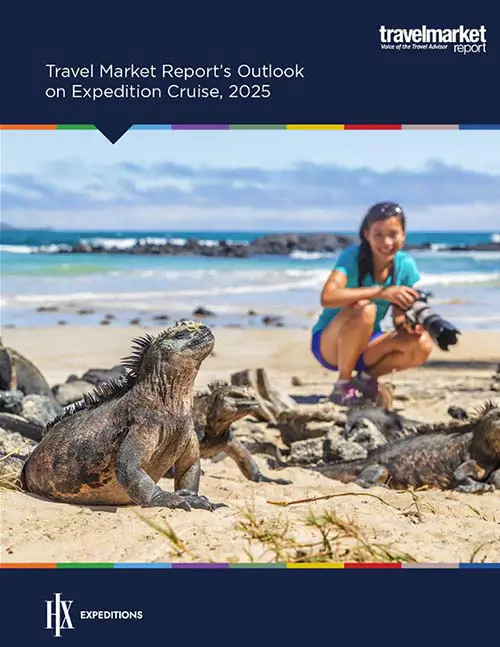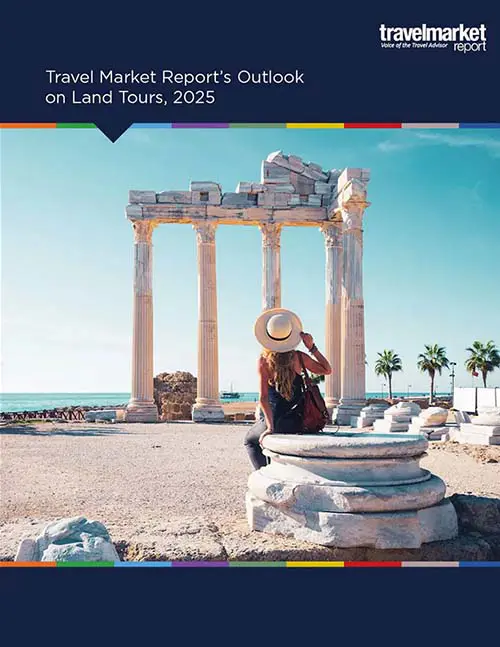Are Value-Adds Discounting? Agents Can’t Agree
by Dori SaltzmanThis is the third article in Travel Market Report‘s four-part series on cruise rebating.
Cruise discounting is a contentious issue. Yet most traditional agents would agree that discounts in the form of rebating – using hard cash from a commission to take money off the price of a cruise – is not a healthy practice for the travel agency distribution channel.
No such consensus is apparent on the other way agents give cruise clients more for their money – handing out freebies, typically value-added amenities such as prepaid gratuities, shore excursions and specialty dining.
Agents can’t even agree on whether giving clients value-adds is a form of discounting. Some say yes. Others say providing this client benefit demonstrates an agent’s value, and that’s just good business.
Uneven field
Aggravating the issue of rebating (in all its guises) is another matter about which agents are divided – the fact that travel sellers don’t compete on even terms – not even close.
 |
Large agencies, OTAs, and agencies that are affiliated with a host organization, franchise company or marketing group are obviously able to give customers far more substantial value-adds – and deeper price discounts, for that matter – than smaller and independent agencies. For one thing, they can afford to purchase huge blocks of group space, which come with value-added amenities included.
“You’d like to think it’s a level playing field if you sell one cruise versus 1,000, but it’s not,” said Brad Anderson, co-president of Avoya Travel / American Express.
 |
The reality is that size creates an advantage. “I don’t like it. But I don’t think K-Mart likes the fact that Walmart sells jeans at a different price and it’s the same exact jean. It’s a very competitive world,” ASTA president and chair Chris Russo told Travel Market Report.
Discounter rhetoric?
For some agents, any value-add that an agent purchases and then gives to a client is a form of discounting that should not be allowed. Other agents draw a clear line between value-adds and rebates in the form of price discounts – regardless of whether an agency uses commission dollars to purchase value-adds.
“The biggest problem small to medium agencies run into is the inclusion of ‘gratuities’ and discounting of shore excursions by some of the large online companies,” a reader who identified herself as Karen wrote in an online comment about an earlier article on rebating in Travel Market Report.
“Some of the cruise lines call this ‘added value’ and allow a certain percentage of the overall sale. That’s just rhetoric for discounting!”
 |
Nancy F. Yoffe, ECCS, owner of a Cruise Planners franchise in Spartanburg, S.C., agreed. “Value-adds are definitely a form of discounting – whether you give dollars off the amount paid or give it to the client in the form of an onboard credit, pre-paid gratuities, etc.”
Anderson offered a definition of rebating that encompasses value-adds: “Rebating can best be described as any monies that a travel agent gives back out of commission, whether it’s in the form of cash back or a gift like a shore excursion or bottle of wine,” he said.
Adding real value
Chris Russo, who is also the owner of a small agency, Travel Partners in Broomfield, Colo., said he sees a key difference between value-adds and discounts.
“If an agent is willing to eat some of their commission and give somebody an onboard credit, you’re actually adding extra value to the person’s cruise. When you’re just rebating the commission to lower the price, you’re not adding any more to the cruise.”
 |
Dwain Wall, senior vice president and general manager of Cruise One and Cruises Inc., noted that “value-adds are the industry standard for consumer-facing offers.”
The most common value-add, the onboard credit, is “similar to an agent providing a bottle of wine or a welcome gift. The agent is providing an additional incentive versus discounting,” he said.
What’s needed: clear limits
Michelle Fee, CTC, president and CEO of Cruise Planners / American Express, agrees that value-adds are a positive thing, but she argues that there should be limits.
 |
“I’m all for a small value-add, a $50 shipboard credit or a transfer to the pier, as long as it’s within a range where another agent can compete with it,” Fee said.
Yoffe also suggested there be a limit. “The fact that some lines allow up to 10% value-adds, including the NCFs, is ludicrous. It not only makes it impossible for most agencies to compete, but it cheapens the product and the value of the travel agent. There is only so much service you can sell.”
For Emerson Hankamer, president and COO of the online agency Vacations to Go, limits are a key issue as he believes the value of a giveaway determines whether it constitutes a value-add or rebating.
 |
“If it [a value-add] is taken out of the commission, then the cruise lines need to impose limits on how much can be done. If it becomes a systematic giveaway, then it’s approaching rebating.
“There should be some flexibility,” he added. “If one agent invests significantly more resources to promote a particular partner and they get great results, the cruise lines should be able to reward them.”
Advertising: a line in the sand
For some agents, the dividing line between legitimate and illegitimate use of value-adds is whether agents mention them in advertising and promotional materials.
“A lot of agents give something extra, a gift card, a bottle of wine,” said one agency marketing group executive, who asked not to be named. “I have no problem with that. What they choose to do with their commission, whether it’s give a free bottle of wine or free insurance, that’s just a value-add. It’s not going out and advertising a lower price.”
Yoffe emphasized the point about advertising as well. “If they [cruise lines] want to allow the value-adds, realizing that a lot of their huge clients insist on it, they should not allow any rebates, discounts, or value-adds to be advertised online or in print advertising.”
Leveling the field
The ability to compete is central to much of the broader discussion surrounding rebates, whether in the form of price discounts or value-adds. Many agents said they want a level playing field, so all agencies are competing based on service alone.
“Small businesses cannot compete with the discounters and large Internet companies who get special pricing and who give away the store just to make a sale,” Yoffe said.
For Yoffe, a small home-based agent affiliated with a large cruise-selling franchise, any disparity in the agency playing field should be based on promotions and amenities – not on price.
“The larger agencies have the advantage of being able to hold a lot of group space, offer promos and receive certain amenities. I believe that is fair,” Yoffee said. “When agencies produce, they should be rewarded – but pricing should be equal to all.”
Not that the field has ever been level.
 |
“There were always big agencies and small boutique agencies,” said Chuck Flagg, owner of The Flagg Agency, a small home-based Cruise Holidays franchise in Canton, Ga.
That’s normal, Wall suggested. “Look at any industry, whether it’s automobiles or big box centers like Walmart or Target. They’re discounting because of their bulk buying and because of their leverage with suppliers.”
Next week: The cruise line perspective on rebating and discounting.
Please see Parts 1 and 2 in Travel Market Report’s series on cruise rebating: Rebating on Cruise Sales: Where Do You Stand?, June 9, 2011, and Cruise Line Rebating Policies: A User’s Guide and Chart, June 16, 2011.


























